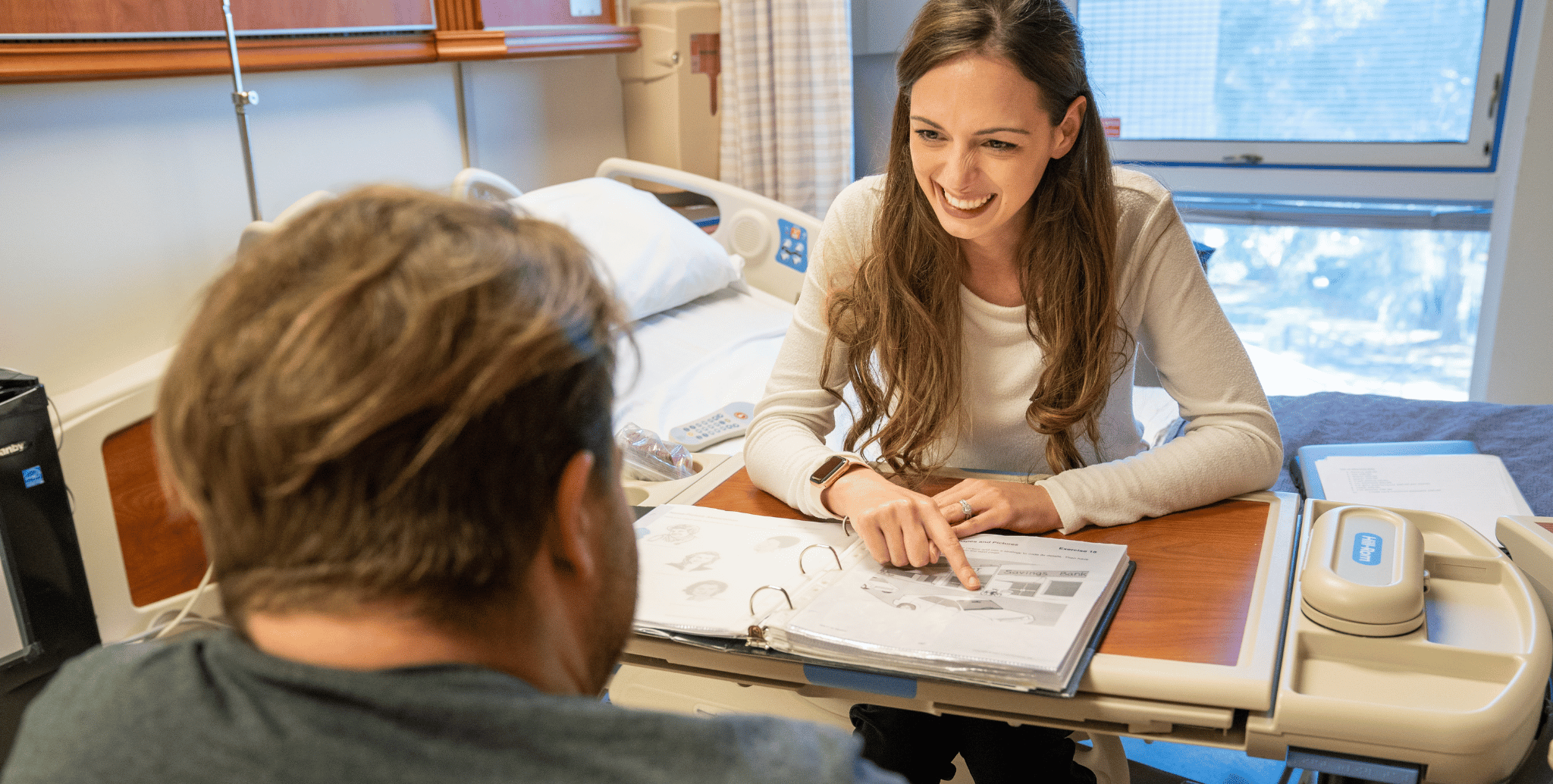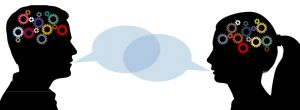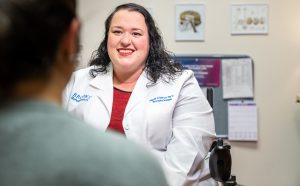Understanding Dysphagia and Aphasia: Key Differences Explained

Back to physical health resource hub
Aphasia and dysphagia are both disorders where speech-language pathologists are an integral part of the treatment team.
Patients often confuse these disorders, as they sound similar in pronunciation. However, they are two distinct conditions that affect individuals in different ways.
If you are experiencing one of these disorders for the first time or are taking care of a loved one who was recently diagnosed, we hope this article helps you. Better understanding the difference between aphasia and dysphagia and the treatment options will help prepare you for what the road to recovery could look like.
In this article, we will discuss:
- The definitions of aphasia and dysphagia
- Symptoms of each disorder
- Causes for each disorder
- Treatments and exercises to help during recovery
- Resources for caregivers and people experiencing these disorders
Aphasia Definition
Aphasia is a language and speech disorder that affects how a person communicates. Someone with aphasia may have difficulties expressing language, comprehending language or both.
It usually occurs due to damage to the part of the brain that controls language. For most people, this is the left side of the brain.
Dysphagia Definition
Dysphagia involves a swallowing disorder. It can include any part of the swallowing process of moving liquids or foods from the mouth to the stomach.
It develops when there is a problem with the neurologic control or structures involved in swallowing. For example, the muscles and nerves involved in the swallowing process may become weak or damaged for various reasons.
Symptoms of Aphasia
Symptoms may vary in severity based on different factors, such as the cause of aphasia and the extent of damage to the brain. According to the American Speech-Language-Hearing Association, symptoms of aphasia may include the following:
- Difficulties thinking of the word you want to say
- Saying the wrong word for what you mean. For instance, saying “fork” when you mean “spoon”
- Difficulties following directions
- Not recognizing the meaning behind words
- Speaking unrecognizable words
- Difficulty reading signs and forms
- Switching sounds in words
“Aphasia is a disorder that affects your language but not your intellect,” said Jodi Morgan, CCC-SLP, a speech-language pathologist (SLP) who is the manager of the Brooks Rehabilitation Aphasia Center. “Aphasia may affect messages coming in and out that involve reading, writing or talking.”
Symptoms of Dysphagia
Symptoms of dysphagia may include the following:
- Poor management of oral secretions
- Drooling
- Feeling like food is “sticking” to the back of the throat
- Foods/liquids leaking from the nose
- Difficulty controlling breathing and swallowing
- Recurrent aspiration pneumonia from inhaling food or liquids into the lungs
Causes for Aphasia and Dysphagia
Although they are different conditions, aphasia and dysphagia sometimes have a similar cause.
For example, a stroke can cause damage to the part of the brain that controls language and damage the part that plays a role in swallowing.
“There is a condition called primary progressive aphasia that can cause aphasia,” said Morgan. “But aphasia most often occurs due to a stroke.”
Other possible causes include:
- Brain tumor
- Brain injury
- Brain infections
Dysphagia can develop for several reasons. It can occur at any age. But according to the National Institute on Deafness and Other Communication Disorder, dysphagia occurs most often in older adults.
Possible causes of dysphagia include:
- Stroke
- Cancer of the head, neck or esophagus
- Parkinson’s disease
- Multiple sclerosis
- Cervical spine injury
Aphasia Treatment Activities
The treatment activities for aphasia often include helping people live successfully.
“Aphasia can be devastating and isolating,” said Morgan. “But people can and do improve. Someone might not have the ability to speak in sentences. But we teach people how to use icons, drawings or other communication tools to become re-engaged in life.”
The specific therapy will vary by individual. Your SLP can help develop the most appropriate treatment plan.
Treatment activities may include:
- Use remaining language abilities and restore language as much as possible
- Develop language workaround strategies
- Learn ways to communicate using hand gestures, drawings, and writings
Dysphagia Treatment Exercises
Treatment exercises are designed to strengthen muscles involved in swallowing, improve swallowing coordination, and possibly learn special ways of eating.
According to the National Foundation of Swallowing Disorders, possible swallowing exercises include:
Super-supraglottic swallow: This exercise is a rehabilitation technique to help someone increase closure at the entrance into the airway.
Tongue strength exercise: Speech therapists may perform this exercise in different ways to strengthen the tongue. For instance, they may have an individual place their tongue on a tongue depressor and push against it.
Hyoid lift maneuver: This exercise helps improve swallowing muscle strength and control.
Yawn: A yawn exercise helps increase strength in the throat and tongue muscles.
Lip closure exercise: This type of exercise improves lip strength. Therapists may recommend different types of lip closure exercises. For instance, press the lips together tightly for five seconds, relax and repeat.
Resources for People with Aphasia/Dysphagia
There are several resources available for people with aphasia and dysphagia. Your doctor or your SLP may also have information on resources in your area.
Aphasia Centers and Support Groups
As aphasia can affect so much of a person’s identity, ongoing treatment and support is important for a patient to get their confidence back and learn how to communicate in different ways.
There are aphasia centers available across the U.S., including Brooks Rehabilitation, where we accept patients from around the world to continue to support their recovery.
To find a comprehensive list of aphasia centers, visit aphasia.org.
Dysphagia Support Groups
The National Foundation of Swallowing Disorders has a variety of online support groups to help caregivers and patients. Support groups are for both adults and children.
Brooks Can Help
If you or a loved one is experiencing one of these disorders, Brooks Rehabilitation has highly knowledgeable and trained clinical staff to help in the recovery process. To request more information or become a patient here.


